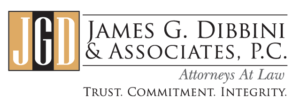As of December 3, 2014, all residential leases are required to clearly state in bold letters whether the premise has an operative and maintained sprinkler system. This requirement applies to every residential lease including vacancy leases and renewal leases. If there is an operative and maintained sprinkler system, the lease must also state the last date of maintenance and inspection for the system.
On May 29, 2014, Bill Number A07641A was introduced in The New York State Assembly and on August 5, 2014, Governor Cuomo signed the Bill into law as Real Property Law §231-A. This law took effect 120 days from its signing.
Real Property Law § 231-A states that:
Real Property Law §231-A. Sprinkler System Notice in Residential Leases
- Every residential lease shall provide conspicuous notice in bold face type as to the existence of a maintained and operative sprinkler system in the leased premises.
- For purposes of this Section, “Sprinkler System” shall have the same meaning as defined in Section One Hundred Fifty-Five-A of the Executive Law **
- If there is a maintained and operative sprinkler system in the leased premises, the residential lease agreement shall provide further notice as to the last date of maintenance and inspection.
**New York Executive Law 155-A (5) defines “sprinkler system” as follows: “Sprinkler system” shall mean a system of piping and appurtenances designed and installed in accordance with generally accepted standards so that heat from a fire will automatically cause water to be discharged over the fire area to extinguish it or prevent its further spread.
As there is no penalty provision in the law, the effect of noncompliance will not be known until a violation occurs and is sued upon. However, this law was passed, in part, with lobbying pressure from individuals and groups that have sadly, lost family members in residential fires. Further, Governor Cuomo has stated that “We have witnessed far too much senseless tragedy caused by avoidable fires”. Therefore, compliance with the law should be treated as a concern of great importance as penalties for noncompliance could be influenced by public perception and political pressure. At a minimum, leases should contain the following language in bold letters that are easily visible:
The leased premises (choose one of the following) is / is not serviced by a maintained and operative sprinkler system that was last maintained on __/__/__ and was last inspected on __/__/__.
Please contact James G. Dibbini & Associates, P.C. for information regarding this law or with any other real estate questions and concerns.
Note: This James G. Dibbini & Associates, P.C. blog post is a publication of James G. Dibbini & Associates, P.C. All Rights Reserved. Quotation with attribution is permitted. This blog post offers general information and should not be taken or used as legal advice for specific situations, which depend on the evaluation of precise factual circumstances. Please note that James G. Dibbini & Associates, P.C. does not undertake to update its publications after their publication date to reflect subsequent developments. Prior results do not guarantee a similar outcome. This publication may contain attorney advertising.







A small gallery
News, PersonalLorem ipsum dolor sit amet, consectetuer adipiscing elit. Aenean commodo ligula eget dolor. Aenean massa. Cum sociis natoque penatibus et magnis dis parturient montes, nascetur ridiculus mus. Donec quam felis, ultricies nec, pellentesque eu, pretium quis, sem.
Aenean vulputate eleifend tellus. Aenean leo ligula, porttitor eu, consequat vitae, eleifend ac, enim.
Read more
Sprinkler System Notice Required for All Residential Leases
UncategorizedAs of December 3, 2014, all residential leases are required to clearly state in bold letters whether the premise has an operative and maintained sprinkler system. This requirement applies to every residential lease including vacancy leases and renewal leases. If there is an operative and maintained sprinkler system, the lease must also state the last date of maintenance and inspection for the system.
On May 29, 2014, Bill Number A07641A was introduced in The New York State Assembly and on August 5, 2014, Governor Cuomo signed the Bill into law as Real Property Law §231-A. This law took effect 120 days from its signing.
Real Property Law § 231-A states that:
Real Property Law §231-A. Sprinkler System Notice in Residential Leases
**New York Executive Law 155-A (5) defines “sprinkler system” as follows: “Sprinkler system” shall mean a system of piping and appurtenances designed and installed in accordance with generally accepted standards so that heat from a fire will automatically cause water to be discharged over the fire area to extinguish it or prevent its further spread.
As there is no penalty provision in the law, the effect of noncompliance will not be known until a violation occurs and is sued upon. However, this law was passed, in part, with lobbying pressure from individuals and groups that have sadly, lost family members in residential fires. Further, Governor Cuomo has stated that “We have witnessed far too much senseless tragedy caused by avoidable fires”. Therefore, compliance with the law should be treated as a concern of great importance as penalties for noncompliance could be influenced by public perception and political pressure. At a minimum, leases should contain the following language in bold letters that are easily visible:
The leased premises (choose one of the following) is / is not serviced by a maintained and operative sprinkler system that was last maintained on __/__/__ and was last inspected on __/__/__.
Please contact James G. Dibbini & Associates, P.C. for information regarding this law or with any other real estate questions and concerns.
Note: This James G. Dibbini & Associates, P.C. blog post is a publication of James G. Dibbini & Associates, P.C. All Rights Reserved. Quotation with attribution is permitted. This blog post offers general information and should not be taken or used as legal advice for specific situations, which depend on the evaluation of precise factual circumstances. Please note that James G. Dibbini & Associates, P.C. does not undertake to update its publications after their publication date to reflect subsequent developments. Prior results do not guarantee a similar outcome. This publication may contain attorney advertising.
Top Ten Tips for Landlords before and after renting an apartment.
VideosSo many times I see basic mistakes made by landlords that if avoided would prevent expensive litigation and lost rent. That is why I put together these top ten tips for landlords. Read more
What is an unlawful, illegal or wrongful eviction?
VideosWhile everyone would love for the relationship between a landlord and a tenant to be amicable, the unfortunate reality is that sometimes landlords must seek to evict tenants in order to maintain a safe and profitable property. Read more
What is an order to show cause in a landlord tenant matter?
VideosAn order to show cause or sometimes referred to as an OSC is a motion made by a party (typically a tenant) to be heard by a Judge on a pending action. Usually the OSC is filed after a landlord obtains a judgment of eviction and a tenant is served with a notice of eviction or a 72 hour notice of eviction. Read more
Due Diligence for multi family or other investment property purchases
VideosBuying an investment property is undoubtedly one of the largest investments one can make. Thus, it is imperative that a buyer do his/her due diligence at the beginning of the transaction and usually before signing contracts. Due diligence, regardless of the type of property, is the investigation of the quality, both physical and intangible aspects of the property being conveyed. Read more
What is a holdover proceeding?
VideosA holdover proceeding is a proceeding to evict a tenant on any grounds other than the nonpayment of rent. Whether the case is Yonkers, Mt. Vernon, White Plains, New Rochelle or in the boroughs such as the Bronx or Manhattan, the process is similar. Read more
Do you need a zoning variance for your property?
VideosNew York State’s Constitution grants the state legislature the broad authority to regulate land use if it is in the public interest. Although the state retains some authority, much of the power to plan communities and provide for and enforce zoning regulations has been delegated to local municipalities. Read more
How long will it take to evict my tenant?
VideosWe understand the urgency of getting positive results asap. Timing of a landlord-tenant matter is largely impacted by whether the action brought is a:
a. Nonpayment Proceeding
(which is an action for rent owed) or Read more
A nice entry
NewsLorem ipsum dolor sit amet, consectetuer adipiscing elit. Aenean commodo ligula eget dolor. Aenean massa. Cum sociis natoque penatibus et magnis dis parturient montes, nascetur ridiculus mus. Donec quam felis, ultricies nec, pellentesque eu, pretium quis, sem.
Read more